Pastor Andrew Sandlin recently posted a beautiful and poignant blog posting “Time Passages” about the trials of an aging church leader. He wrote:
It is arresting to observe the constancy of older men and women within the variability of historical flux and the inevitable change it engenders. The world has changed, but they have not. They seem an anachronism to their juniors, for whom the unquestioned assumptions of the present age are normative. The elders carry with them the perspectives, virtues, convictions, prejudices, and vices of the peculiar era of their youth. To their idealistic juniors, the prejudices and vices predominate, and the virtues and convictions evaporate at the scrutiny of youthful eyes naively conditioned by a single era, their own era, whose normativeness they would not think to question. (Emphasis added)
The reflection is by a church elder concerned about the handing over of church leadership to the next generation. He fears that the hard earned wisdom of his generation will be dismissed out of hand by their successors.
The passage of time is hitting baby boomer Evangelicals hard. As they head into the 50s and 60s their perspective on life changes. The sunny optimism of youth is being overtaken by troubling shadows of old age. The forever young baby boomers find themselves being confronted by end of life issues like retirement, physical decline, and inevitable death.
The local church once thought to be a place of solace and security has become a source of uncertainty and anxiety. Michelle Van Loon in “Aged Out of Church” described how the mid life crisis is affecting Evangelical churches.
Church should be a place of meaningful connection with God and others at every stage of our lives, but nearly half of more than 450 people who participated in an informal and completely unscientific survey I hosted on my blog last year told me that their local church had in some painful ways exacerbated the challenges they faced at midlife. As a result, they’d downshifted their involvement in the local church from what it had been a decade ago.
Pastor Sandlin is calling for an intergenerational conversation in the church. He wants the younger generation to be receptive to the “strangeness” of the past.
What in the 1960’s was termed the “generation gap” is, however, precisely the opposite of what should occur. A conversation, not a gap, is what is most needed. A generational conversation is essential not only to transmit the best elements of the past’s “strangeness” to a succeeding generation but also to exhibit the subversive fact of historical conditioning to the previous one, which ordinarily glories in the peculiar features of the age of its youth, and intensely so the older it grows. (Emphasis added)
Pastor Sandlin has a good point here. There is indeed a need for intergenerational conversation. The wisdom of the Fathers is desperately needed, especially by cultures like ours which have been given over to the youth. However, there are powerful forces in Evangelicalism that work against this. Even the best and most mature Evangelical churches place a premium upon youthfulness and the innovation that goes with it. Michelle Van Loon observed:
When we in the church ape (awkwardly!) our culture’s obsession with all things young and cool, when we focus our energies on creating ministries targeted at the same desirable demographic groups targeted by savvy advertisers, we communicate to those who don’t fit those specs that they are less desirable to us than the ones we really want in our church family.
The emphasis on evangelism has led to the drive to boost church membership, draw in young families, and keep up with modern youth culture. As a result of this, many ministry programs in Evangelicalism have been geared to the first half of life issues: how to find God’s will for finding a good job and the perfect mate, how to have a solid spiritual life while living life to the fullest, how to raise a godly family, how to have a Christian witness at work and with friends. Little is said from the pulpit about second half of life issues.
From Generation to Generation
Pastor Sandlin’s lament is in many ways that of a Protestant without an enduring tradition. There is no capital “T” Tradition in Protestantism, only small personal traditions. He wrote:
The solidarity of humanity is marked partly by this gripping trait – the ability not merely to span eras (“tradition”) but to commit a small portion of one’s past, one’s private, unrepeatable tradition, to another individual. (Emphasis added.)
These small traditions are fine in the short run but are incapable of sustaining a congregation for the long haul, i.e., over the centuries. That is why Protestantism is in such dire straits today.
The abandonment of Tradition has made the Evangelical culture vulnerable to the flux of modernity. For Evangelicalism the Gospel is eternal but the forms of church structure and the framework for worship and discipleship are temporary and contingent, changing from one generation to the next – often every few months if not every week! Like their Roman Catholic elder brothers Evangelicals never quite escaped theological innovation. This disregard/dismissal of Tradition has resulted in one generation feeling little obligation much less a sacred duty to learn from their predecessors about the Christian way of life.
This historical flux lamented here by Pastor Sandlin can be traced to the Protestant principle: “Ecclesia reformata, semper reformanda” (the church reformed, but ever reforming). The Protestant Reformers did not want change for change sake; rather they sought change on the basis of Scripture. But without a Tradition that acts as a guardian to how Scripture is to be read and interpreted, the Reformers opened the floodgates for innovation.
Over the past several centuries Protestantism has undergone tremendous changes, but in recent years the pace of change accelerated. Protestantism’s landscape has changed such that familiar landmarks are disappearing or becoming barely recognizable to the older generation. Evangelical theology has recently branched off into neo-Calvinism, neo-Pentecostalism, and postmodern Emergent theology. This loss of historical memory can be seen in the recent shift away from “traditional” hymns to contemporary worship with praise bands using electric guitars and drums. The irony here is that the so called “traditional” hymns for the most part date back to the 1600-1800s!
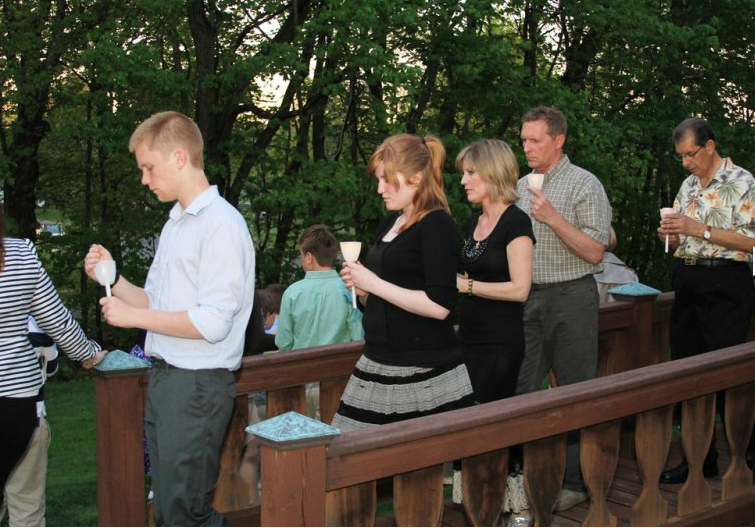
Orthodox Tradition — Holy Friday Lamentations
The Comfort and Security of Holy Tradition
So, what is missing? What is missing from the best of Evangelicalism is a deeply rooted and sacred commitment to Holy Tradition. Tradition consists of one generation passing on and another generation receiving a body of teaching. The Apostle Paul expected the early Christians to be committed to Tradition. He admonished the Christians in Thessalonica:
So then, brethren, stand fast and hold the traditions which you were taught, whether by word or our epistle. (2 Thessalonians 2:15; OSB; emphasis added)
Here Paul instructs the Christians to hold fast to both written Tradition (Scripture) and to oral Tradition. This concern with the traditioning process did not begin with Paul. Tradition did not as it were fall unexpectedly from the sky into the lap of the early Church. No, Holy Tradition has a deep historicity that reaches back into the Tradition of the Old Testament saints and patriarchs.
What we have heard and known, What our fathers have told us. We will not hide them from their children; We will tell the next generation . . . . . . . which he commanded our forefathers to teach their children, so the next generation would know them, even the children yet to be born, and they in turn would tell their children. (Psalm 78:3-6; NIV; emphasis added)This sense of obligation to the past is deeply engrained in Orthodoxy. Metropolitan Kallistos Ware in The Orthodox Church (ch. 10) captured wonderfully this deep sense of reverence the Orthodox have for the past.
When Orthodox are asked at contemporary inter-Church gatherings to sum up what they see as the distinctive characteristic of their Church, they often point precisely to its changelessness, its determination to remain loyal to the past, its sense of living continuity with the Church of ancient times. (Ware pp. 195-196; emphasis added)
So, what is Holy Tradition? Ware describes it in this way:
A tradition is commonly understood to signify an opinion, belief or custom handed down from ancestors to posterity. Christian Tradition, in this case, is the faith and practice which Jesus Christ imparted to the Apostles, and which since the Apostles’ time has been handed down from generation to generation in the Church. But to an Orthodox Christian, Tradition means something more concrete and specific than this. It means the books of the Bible; it means the Creed; it means the decrees of the Ecumenical Councils and the writing of the Fathers; it means the Canons, the Service Books, the Holy Icons – in fact, the whole system of doctrine, Church government, worship, spirituality and art which Orthodoxy has articulated over the ages. Orthodox Christians of today see themselves as heirs and guardians to a rich inheritance received from the past, and they believe that it is their duty to transmit this inheritance unimpaired to the future. (p. 196, emphasis added)
In contrast to Sandlin’s aging church elder who has only personal insights to pass on to the next generation in Orthodoxy there is a sense that one is part of a Great Tradition that spans the generations and extends to the Second Coming.
This reverence for Tradition goes back to early church fathers like John of Damascus who wrote:
We do not change the everlasting boundaries which our fathers have set but we keep the Tradition, just as we received it. (in Ware p. 196; emphasis added)
John of Damascus here is echoing the Prophet Jeremiah:
Stand at the crossroads and look; ask for the ancient paths, ask where the good way is, and walk in it, And you will find rest for your souls. (Jeremiah 6:16, NIV; emphasis added)If the traditioning process is part of both the Old and the New Testaments, one has to wonder — and lament with them — why there is so little of it among Evangelicals.
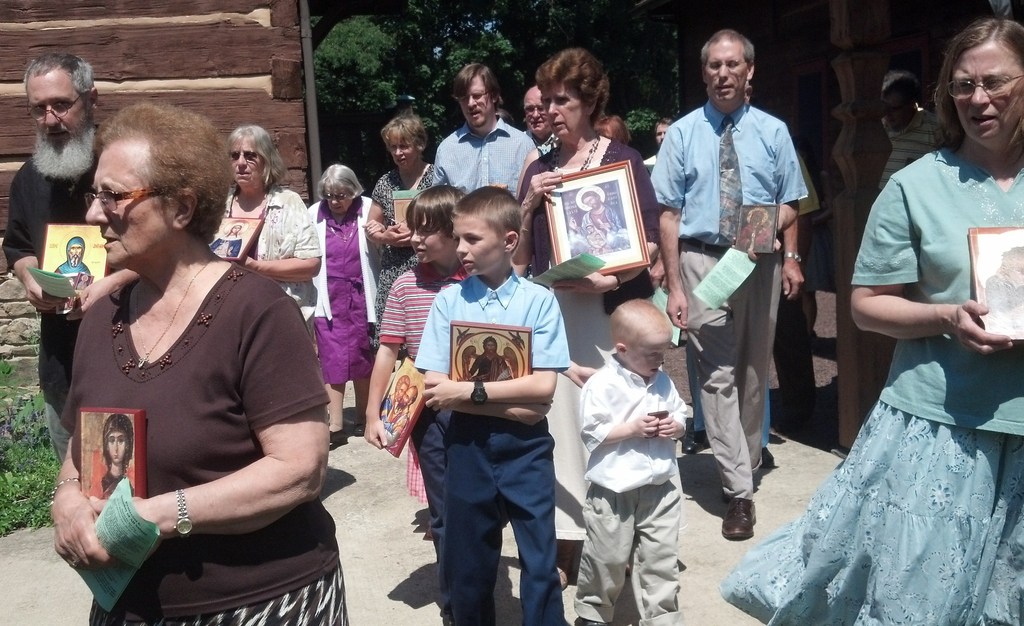
Ancient Tradition – Processing with Icons, Holy Cross Orthodox Church – Williamsport, PA
Unto the Ages of Ages
The stability of Holy Tradition makes intergenerational conversation a natural and expected process. The solidarity of Orthodoxy lies in Holy Tradition. The Liturgy will be there for generations to come. The liturgical calendar and the ascetic disciplines will likewise be followed by future generations. A longtime Orthodox can share insights to younger Orthodox about keeping the fast, following a rule of prayer, how to participate in the Liturgy, and the significance of the Pascha (Easter) service. They can talk about the lives of the saints and martyrs, or the writings of the church fathers.
As the years go by one becomes familiar with the prayers and the theme for the services; one’s heart and mind are reshaped through repeated exposure to the prayers and hymns of the Church. Spiritual healing takes place and enlightenment of the soul commences. In Orthodoxy the past is not “strange” but familiar because it is rooted in the Great Tradition. These things are even more true when there are Orthodox parents and godparents who faithfully live out the teachings of the Church. Where Pastor Sandlin’s church elder can only hope to pass on a private unrepeatable tradition, the Orthodox Christian passes on a Tradition held by the entire Church.
In the Liturgy are prayers that can be helpful for dealing with the second half of life issues. These two petitions are found in the Completion Litany just before the Nicene Creed.
That we may live out our lives in peace and repentance, let us ask of the Lord.
A Christian end to our lives, peaceful, free of shame and suffering, and for a good defense before the judgment seat of Christ, let us ask.
Here we ask God for his mercies in order that we may be faithful to the Gospel all our life. We seek to live a life of prayer and repentance in preparation for that great day when we will stand before the judgment seat of Christ (Matthew 7:21-23, Romans 2:6-11). The Good News is not just the forgiveness of our sins, but also our being transformed into the likeness of Christ. This is the doctrine of theosis (deification). As we stand during the Liturgy we see the icons of the saints who have gone before us. We are reminded that one day our earthly life will come to a close and we will then become part of the great cloud of witnesses mentioned in Hebrews 12:1. Eventually, the intergenerational conversation will take us to the communion of saints and to the life of the age to come where we will come face to face with Christ.
The Ancient Beauty
Too late have I loved you, O Beauty so ancient and so new, too late have I loved you!
Here Augustine talks about his encounter with God; this line will also resonate for many converts who have been seeking something more in worship. There is a mystical beauty about Orthodox worship that makes even Protestant “traditional worship” ring a bit hollow and the notion of “contemporary worship” ludicrous. The Liturgy is for the ages. The discovery of the Liturgy leads many converts to wish they had known of the Liturgy sooner.
It is old, very old. So old that almost I feel young again . . . .
The line above is from the Lord of the Ring where Legolas the Elf commented on Fangorn Forest. In the Orthodox Liturgy there is the sense of being part of an ancient tradition that goes on and on and never grows old. Becoming Orthodox involves more than acquiring a new theology, one joins a church rooted in antiquity. Ware wrote:
The thing that first strikes a stranger on encountering Orthodoxy is usually its air of antiquity, its apparent changelessness. Orthodox still baptise by threefold immersion, as in the primitive Church; they still bring babies and small children to receive Holy Communion; in the Liturgy the deacon still cries out: ‘The Doors! The Doors!’ – recalling the early days when the church’s entrance was jealously guarded and none but members of the Christian family could attend the family worship; the Creed is still recited without any additions. (p. 195; emphasis added)
I have experienced the Orthodox Church’s antiquity in surprising ways. One is the recent visit of the Kursk Root Icon to Hawaii. This particular icon dates back to the 1200s. I was amazed to see something that is five centuries older than the United States of America and which predates the Protestant Reformation by three centuries! One cannot help but feel like a child in the presence of this ancient heritage. It is indeed a heritage, a Holy Tradition worthy of reverence and our sacred duty to pass on to our “children’s children” with confidence as we depart this world for the ages to come. May God have mercy on us all.
Robert Arakaki
Sources
P. Andrew Sandlin. “Time Passages” in docsandlin.com (3 April 2014)
Michelle Van Loon. “Aged out of Church” Christianity Today (5 April 2014)
Timothy (Kallistos) Ware. The Orthodox Church. Penguin Books. 1963.
Augustine. Confessions. (Translation by John K. Ryan) Penguin Books.
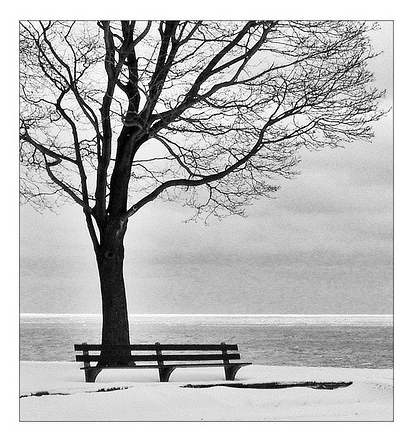
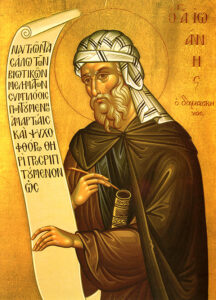

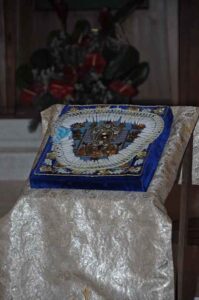
Pastor Sandlin is a fine man, a dear and knowledgeable friend & Pastor. I too thought his article excellent and very touching. Reading through your article here was a thrilling reminder of the beauty and place of Orthodox Holy Tradition. It is indeed the Faith once and for all delivered to the Apostles…by both Christ and the Holy Spirit given to the Church at Pentecost. Wonderful article Robert. Thank you.
There is almost nothing to say in response to this wonderful article, Robert, but Amen.
May the Lord have mercy on all His disciples, of whatever stripe, and bring them to a knowledge of the Truth in all its fullness.
Is the “generation gap” solely a Protestant phenomena? Ancient Faith Radio has a great interview with Bradley Nassif where he bemoans the amount of youth leaving, not merely the Orthodox church, but church of any type.
Jacob,
Thanks for your concern about Orthodox youth leaving the Church. But since neither Pastor Sandlin’s nor my article was addressing this across-the-board problem, it is not on topic and thus irrelevant to this posting.
Robert
BH, you could pick up that conversation if you wanted over here:
https://blogs.ancientfaith.com/orthodoxyandheterodoxy/2014/04/08/losing-our-religion-on-retaining-young-people-in-the-orthodox-church/
Thank you, Karen. I really enjoyed that link. I disagree with Fr SD’s conclusions, but he does address the pertinent issues.
The older I get the more excited I get: we’re closer to seeing Jesus Christ!
A pinnacle “Aha!” moment happened in an Orthodox catechism class when another class member blurted out: “Your main problem is not sin; it’s death!”
Jesus conquered the forces of death in a final, military way, and sealed His definitive victory at Pascha. Reading John 8:51 finally made sense to me: we will never die. It’s as simple as the Gospel has always proclaimed. Don’t try to overthink this.
Thanks for sharing John!
Robert
While tangential, my post had some relevance. A lot of comments on this blog border on EO “triumphalism” of steady new converts and the ever-imminent doom of Protestantism. My point was that this phenomenon–which you correctly identified to an extent–is probably present in all communions.
Jacob,
The Orthodox-Reformed Bridge blog was begun as a place where sincere Orthodox and Reformed who want to learn to understand each other might talk openly. It is also for serious inquirers and/or lurkers alike might read quietly so they can to understand. I sincerely mean no offense by this but given your reading and understanding of both the Reformed faith and Orthodoxy, I’m not sure there is really much here for you to learn. The blog is certainly not a forum for men like yourself to use as the resident naysayer, who takes pot-shots at the sins supposed (opinionated) deficiencies of Orthodoxy. I recommend that you use your own blog for such things. The current post focuses on obvious points — the Reformed have at best a weak, or no real commitment to Holy Tradition as understood and revered and given a priority in Orthodoxy. It is what it is. Sadly, I’m not sure this blog has much left to offer you, though you are welcome to stay and comment graciously. But it will not be a place for you constantly play the contrary Reformed naysayer. Use your own blog for that please.
Robert
Robert, I understand your frustrations with some of the ways Bayou has written on your blog in the past, but I do think that his point is pertinent. You seem to claim that the reason that the Protestant church has such a hard time with inter-generational continuity is the lack of continuity in tradition. But if the Orthodox have the same lack of inter-generational continuity, it isn’t lack of tradition that is the culprit, but something else. My suggestion is that it has something to do with how we teach our youngsters the faith – is it just the motions or is it internalized. As one Orthodox writer has asked, “Are We Religious or Are We Faithful?”. And Bayou is right. If your blog only allows EO triumphalism, then it won’t allow people to adequately wrestle with the issues. I say this as someone who is still sympathetic to Orthodoxy (i.e. I still may end up there).
I’m not sure I’m right here but it seems to me that you [prometheus] and bayou are talking past Robert… perhaps because you have both misread both Pastor’s Sandlin’s salient problem, as well as Robert’s reply.
Pastor Sandlin’s “problem/lament/deep-sigh” is not how to retain evangelical youth in the Church who’ve been lost to the world. The younger men/families he is talking about are in the Church, even with zeal for their faith. His lament is their indifference or unwillingness to hear, listen or receive the wisdom inherent in his own “tradition” however unstructured and nebulous it might be. To say it another way, his concern is not with retention of youthful members, but with their unwillingness to or embrace specific elements/content of the Faith he holds dear…which comprise his own “legacy…or tradition”. He feels keenly sad at not being able to pass this on after him.
As Karen mentions, and I assume Robert will readily agree…retaining our youth in the Church with zeal into adulthood is indeed an across-the-board issue for us all. That is just not the subject/focus here. Rather, it is “what will those young people who DO stay in the Church with some zeal…embrace and pass on from me…that I have received and tried to pass on.” In this I believe is obvious the Orthodox have a historic track-record of not only clearly identifying just what Holy Tradition is to them…but embracing it in such a way that is both caught and taught by young zealous Orthodox who will come after them. Is it, & are they perfect? Absolutely not. Is pointing out the difference here between the two systems…while highlighting the Orthodox love for Holy Tradition “triumphalism”? I think not. But then I don’t think it “triumphalism” for an evangelical blogger to contrast how far better their system has been in evangelizing the lost unchurched community. FWIW that’s just my opinion. As Robert said, “it is what it is”.
Prometheus,
My frustration with Jacob (Bayou) has been his tendency to bring in outside issues into the comment thread. Your comments tend on the other hand to be on target and thoughtful. That is why I appreciate what you have to say.
As David pointed out the problem that Pastor Sandlin’s post dealt with the core leadership remaining in the church, who represent the next generation who will lead the church. Sandlin’s article did not deal with youth leaving the church. That’s a very important issue but it is an all together different issue. I don’t invite people to compliment my writings. If they do write something positive do you recommend that I block them?? If someone writes a comment that is thoughtful and challenging (like yours) then I’m more likely to respond.
I think Pastor Sandlin made a good point. Before I went to seminary my home church set up a special class for young adults called “Leadership Development Program.” Basically, it was a mishmash of Evangelical theology, human resources practices, and administrative theory. A lot of the management material was familiar to me because I had been exposed to them in graduate school. I imagine that if I were still at my old home church I would be on the board of elders and that I would be struggling with questions about the nature of the church, church government, and the right kind of worship. That church changed denominational affiliation and switched from ‘traditional’ Protestant worship to contemporary praise worship. All this happened when I was in seminary so when I came back to visit, it was the same yet different church.
I learned a lot about the Bible at my former church but I can’t recall anything much beyond that with respect to leading the church. My former home church had a lot of business executives and government leaders so it was well run but when it came to church as a distinctive expression of the kingdom of God I felt short handed. This I feel illustrates both the strengths and the weakness of Evangelicalism.
So, to get the conversation back on track let me ask you this: What has been your experience in the intergenerational conversation? Does it support or challenge Pastor Andrew Sandlin’s article?
Robert
I think we all suffer from a greater problem that contributes to this as we march onward in time – the tendency of our western societies to favor the present or future over the past. Our attitude culturally, across Europe and into the Americas, is that we must push forward and what we know now if better than what we knew in the past. Many, but not all, Protestant congregation reinforce this with the dramatic changes made to services over the past several decades – and I would argue that Novus Ordo did the same to Catholicism, though to a lesser extent. Yet the problem exists in all churches.
Our attitude as a people is generally that we are smarter and better off in all ways than generations past. This is at odds with how the world was viewed in the Middle Ages and earlier, when those who lived further in the past were regarded as wiser and better off because they were closer to the Creation itself. The funny thing is that the medieval society essentially believed strongly in the law of entropy on a societal level (and knowledge level) while modern man, obsessed with science and scientific achievement, does not and believes the opposite. Our present attitude began with the Enlightenment and strengthened in the Victorian era.
It is a cultural problem and the allure of the culture that surrounds us with all its toys, etc will be an issue in any Christian body. I think there is a greater remedy in reading the past and encouraging that. C.S. Lewis suggested in his foreword for St. Athanasius’ On The Incarnation that each person read one old book (and he meant very old) for each modern book, because the modern books are dripping with our modern thought process and ideas – the same for secular and religious texts. That method exposes people to a different way of thinking. No panacea exists, however. Reading the Fathers. Reading ancient literature, such as Homer and other Greek authors or going forward to Dante, etc. These things may help break the hold of the modern culture. Liturgical tradition can help as well, but it has to be reinforced and understood.
It is a hard fight because TV, the internet, etc all reinforce the culture, so the only progress against it can be gained in the trenches and with commitment to the youth and a true love of them.
Well said Jeff. It’s complicated and there are many reasons “why” that bolster and support our Modern era’s great pride and arrogance. Lord have mercy. But what you’ve said above is spot on to me.
Robert,
I’m sorry. I didn’t read Sandlin’s article. I only read yours. And from reading yours I got the impression that the intergenerational thing was an important aspect of your argument re: tradition. I cannot comment on Sandlin’s article. Sorry.
Prometheus,
I provided a link to Pastor Sandlin’s article at the beginning of my posting. When you find the time read it for yourself and let me know whether what he wrote resonates with your experience. But in any event I would be interested to know what your experience of the intergenerational conversation has been like.
Wishing you a blessed Pascha (Easter)!
Robert
Regarding the Ware quote, the OCA church I attend recently began omitting “The Doors! The Doors!”
Roger,
Interesting! Could you tell me the name of the parish you attend?
Robert
Holy Cross in High Point, NC. I assume something like Karen said in her comment.
Roger,
Thanks! I’ll look into it.
Robert
Please don’t do anything that will upset anybody, I was just pointing out something that struck me as odd. I kind of regret saying anything.
Mine doesn’t use it either and neither did the Antiochian parish in which I was received. In that parish, I was told it was omitted unless there were formal catechumens in regular attendance. I’m not sure why it is omitted in my OCA parish, since we almost always have at least a catechumen or two. I suspect it is because catechumens generally are not required to depart before the Eucharist anymore (most of them coming from other Christian traditions). Perhaps this part of the Liturgy is also left to the Priest’s or Bishop’s discretion.
I wonder if it’s still done in countries where the majority of the population is non-Christian (for example Japan).
In my anecdotal opinion, the youth of the 90’s (my generation) has essentially turned most Evangelical Church services into what our youth meetings were like. I remember very vividly the attitude in my circle of friends that our youth group meetings were great, lots of upbeat singing (no hymns or psalms), a pretty good message and good discussion and socialization time. We were not quite so happy with our stodgy old Church on Sundays and we had the attitude that once we were in charge of things we would make Church fun; just like our youth meetings.
Well, I think that has exactly what has happened, to the dismay of the older generation who are being pushed aside. The Reformed churches (Presbyterian and Christian Reformed) in my opinion are no exception to this. In my area, most have gone down the “entertainment” path of worship.
I remember clearly a talk by an Orthodox priest (a convert) who was very relieved when becoming Orthodox that nobody asked him if he “likes” the liturgy and what he do to improve it.
Thanks for sharing this!
Robert